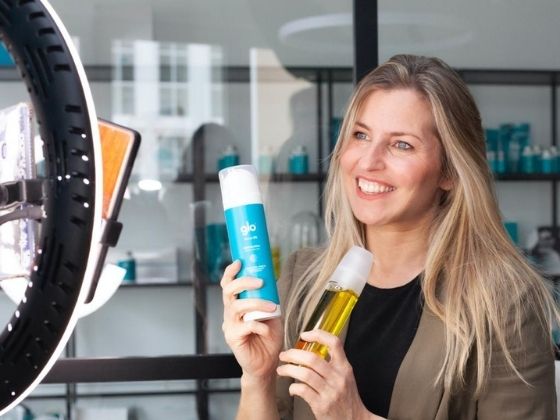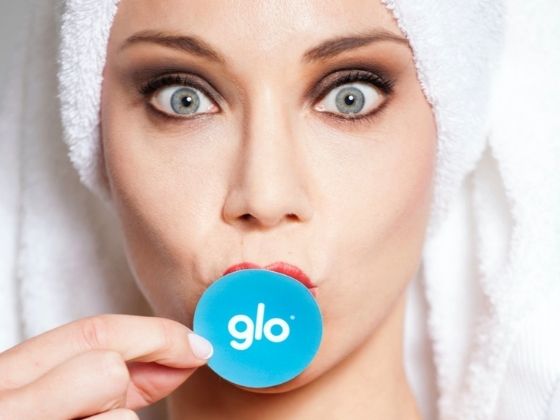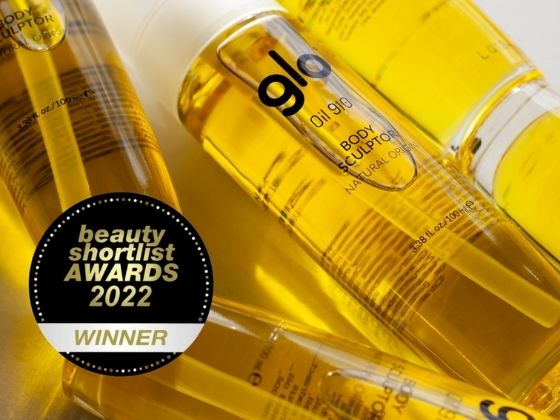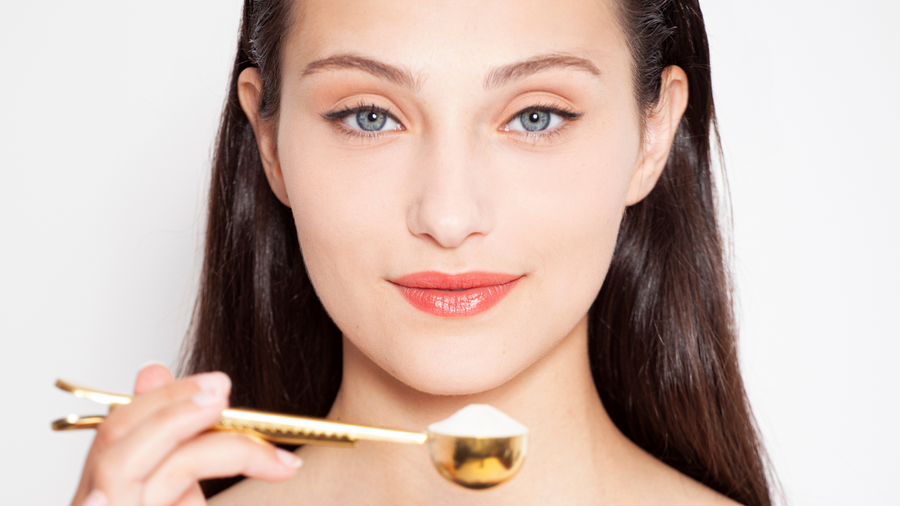One of the star supplements for health and skin is Antarctic Krill Oil, a natural source of Omega-3 DHA and phospholipids that will allow you to have healthy, elastic and hydrated skin, since it acts mainly on the last layer of our skin, which is responsible for maintaining hydration.
But there is even more, its anti-inflammatory effect and the improvement of the elasticity of the tissues will also help you to improve cellulite.
And don't miss out on the benefits it has not only for your skin, but also for your heart, eyes, brain, liver and joints.
What is krill and what is it used for?
Krill oil is extracted from a small shrimp-like crustacean with a very high content of long-chain omega-3 fatty acids (EPA and DHA).
Krill is the first animal in the food chain, it feeds on phyto and zoo plankton, from where it gets its nutrients. They are between 3,000 and 4,000 meters deep in the sea and under the pressure of all this ocean water, where the cold and darkness is absolute. Where are the purest parts of the planet. Of the Euphasia Superba variety.

Being the first link in this food chain we get a purer oil and nutrients. Avoiding heavy metals, toxins and other substances that accumulate in the skin and fat of some fish.

These tiny animals congregate in large masses, which can even change the color of the sea to red or pink, and together with plankton, they form the most important biomass on earth and one of the best food sources.

How is krill oil and fish oil different?
Both are sources of Omega-3 DHA but they have several differences:
- The first, obvious to the naked eye, is the SIZE. The fish pearl is yellow (amber) and larger, while the krill pearl is reddish and smaller.

- The second important point is the TASTE. Krill oil does taste fishy.
- In addition, krill oil is biosoluble (it dissolves perfectly with stomach acids), so it does not produce REFLUX.
- Krill oil, in addition to being a source of Omega-3 DHA, is also a source of phospholipids and astaxanthin.
- Krill oil has great stability, it does not go rancid as quickly as other types of fish oil (astaxanthin is a natural preservative due to its high antioxidant power)
- It is bioefficient: The phospholipids in krill oil allow greater absorption of the other substances they contain (choline, vitamins and antioxidants)
- Krill oil is a source of astaxanthin, a very powerful antioxidant, which also contributes to cardiovascular health and protects against oxidative damage (cellular aging), and gives it its red color.
In the body, these fatty acids are part of the blood and cell membranes, and are precursors to many essential metabolic reactions.
What does krill oil contain?
1. OMEGA-3 FATTY ACIDS EPA AND DHA
These essential fatty acids are one of the most researched nutrients, with a wide range of benefits for heart, eye, liver and brain health; It is also a great beauty ally as it is a vital part of skin cells.
2. PHOSPHOLIPIDS
It is one of the great differences with other types of Omega-3. Phospholipids allow greater absorption of the other substances they contain, vitamins and antioxidants.
Phospholipids are another type of beneficial fat. These are part of the structure of cell membranes, maintaining the function and communication with the rest of the body.

In fish oils, Omega-3 is in triglyceride form, while in Krill oil it is in phospholipid form, which makes absorption more effective, more bioavailable and bioefficient.
Phospholipids are absorbed intact by the small intestine thanks to digestive enzymes.
3. CHOLINE
Phosphatidyl-choline helps in the transport of fats and cholesterol, so it is of great help in the liver and in its detoxification.
Choline is also very important in brain development, improving memory and learning. In fact it is an important element in the development of the brain in babies, for pregnant and lactating women.
Choline is an essential nutrient vital to many functions in the body.
4. ASTAXANTHIN
Astaxanthin is the pigment in krill oil that gives it that characteristic reddish color, and one of its main functions is the proper functioning of liver function and skin.
It is a great energy contribution and great antioxidant action.

Astaxanthin can protect cell membranes against free radicals, and help improve the action of antioxidants such as vitamins E and C. It is part of the beta-carotene, with greater antioxidant capacity. Although unlike carotenoids, it cannot be converted into vitamin A in the body.
Thanks to this antioxidant capacity, krill oil helps to inhibit skin pigmentation, preventing depigmentation and helping to maintain its hydration.
At the same time, it is a natural preservative that allows not having to add preservatives to the Oil and prevents it from becoming rancid.
What are the benefits of krill oil?
As we have already seen, it is an important source of fatty acids, astaxanthin and phospholipids, and has all the benefits of the actions attributed to these elements.
- Improves of inflammatory problems, favoring the maintenance of joints and inflammatory processes in the body, such as cellulite.

- Lowers blood levels of blood lipids, which helps with proper liver function. And it is very helpful in weight loss processes.
- It has beneficial effects for circulation and heart health, helping to regulate cholesterol and triglyceride levels.
- Essential nourishment for the skin. It maintains the hydrolipidic layer of the skin, the last layer of the dermis, which allows us to have hydrated and elastic skin.

- Great antioxidant action, because it is a protector of free radicals, it can be called the marine flavonoid.
- Improves pre-menstrual symptoms.
- It is a great source of energy, both for physical, mental and emotional fatigue. Helps with memory and concentration.

Other benefits, experience when taking krill oil:
Apart from the health benefits, Krill Oil is more pleasant to take than fish oil, thanks to the phospholipids that allow
- EASIER TO SWALLOW: Phospholipids make the omega-3s in krill oil more bio-efficient and stable. This allows for smaller capsules when used in supplementation.
- NO FISHY AFTERTASTE: The phospholipid-bound omega-3s in krill oil mix well with stomach contents, preventing fishy aftertaste and other unpleasant digestive issues.
- BIOEFFICIENT: Phospholipid-bound omega-3s are better utilized by our body's cells and are efficiently incorporated into cell membranes.
We do not eat enough Omega-3, so it can always be taken, since the body needs it for proper health.
According to studies conducted, such as the 2016 study published in Progress in Lipid Research, it has been found that 97% of the world's population has less than optimal level of omega-3 in their body.
Spain is within the areas where Omega-3 levels are low, although more fish is eaten than in other countries, where there is a great deficiency, such as North America, Central and South America, Europe, the Middle East, Southeast Asia and Africa.

What is the best brand of krill oil?
Those that use Superba® Boost krill as raw material, whose Omega-3s are linked to phospholipids that guarantee better assimilation by the cells of our body, which allows smaller capsules to be manufactured.
From the point of view of traceability, all steps can be followed, from the capture of the krill to the final product that is consumed.
SuperbaTM is the most researched brand of krill on the market. The studies include various studies related to heart, brain health and sports nutrition, for example.
In addition, SuperbaTM Krill Oil is reflux-free, as the omega-3s from the krill mix with the contents of the stomach, thus preventing reflux and other unpleasant digestive problems more common in other marine sources of omega-3s.
Glo, we offer Omega 910, the best Krill Oil, ultra-concentrated and purified, for maximum bioefficiency. These essential oils are the basis for keeping the skin hydrated and elastic.

How is krill oil taken?
These pearls usually have 590mg, and it is recommended to take 2 per day.
Who can take krill oil?
Krill oil is an ideal supplement for those who do not have an allergy to shellfish and want to take care of:
- The beauty and health of the skin.
- The health of your heart.
- Brain health, promote memory and attention.
- To keep eyesight in good condition.
- If you have an inflammatory disease, which affects, for example, the joints.
- It is recommended to take pregnant for the proper formation of the baby's brain during its development.

Who cannot take krill?
People who suffer from allergies to shellfish or fish should not consume krill, as they may suffer the typical consequences of this pathology.
It is very good to take during pregnancy, to promote both the health of the mother and the developing baby.
If in doubt, always check the ingredients and consult a doctor before consuming it.
CONCLUSION ON KRILL OIL
Krill oil is a food supplement that should not be missing from our diet to maintain vitality and health, with proven benefits on our brain, liver, eyesight, joints, heart...
And from a beauty point of view, it is essential for beautiful, healthy-looking skin that is well hydrated, preventing depigmentation and dry skin. In addition, it improves cellulite thanks to its anti-inflammatory effect.
Easy to drink, without bad taste or reflux, without salts (TMO), or triglycerides, from a pure and clean source, without added preservatives, thanks to its high antioxidant power. Ideal for any age and gender.
So... what are you waiting for?
Try Omega910, krill oil. Find out and start taking care of yourself now!












